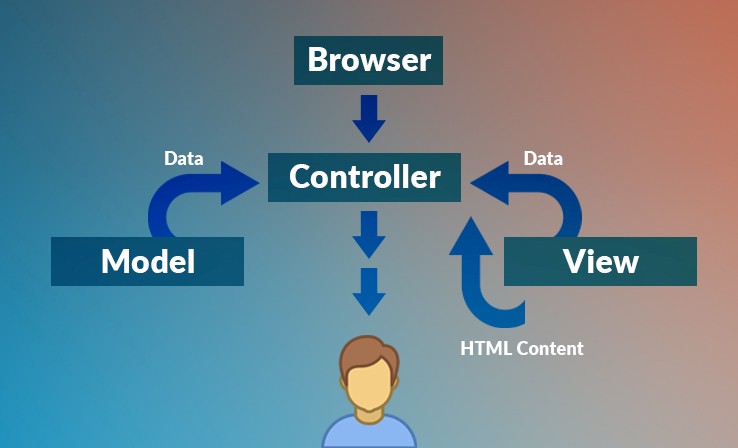PHP is one of the most prevalent programming languages around the world today. Besides, the PHP 7 release has also made this server-side programming language better and more stable than ever before.
So, what's the whole point of using a PHP framework rather than raw PHP to develop your application?
Well, look at the few major benefits –
- Frameworks make it easier for developers to scale systems
- The MVC model ensures rapid development.
- Frameworks are better at securing a web application from common security threats.
- The principle ‘Don't repeat yourself (DRY)’ ensures minimal code and maximum impact.
These benefits are a bit too good to be ignored, aren’t they?
However, choosing the best PHP framework requires a bit of research. Here are a few questions to consider in planning phase to decide on a framework:
1. Does it capture the primary goal of your application?
Decide what your domain and primary goal is. Is it an ecommerce portal, a social platform, a blog or a business website?
A blog site may need a framework with options for various themes and plugins to choose from. For instance, an eCommerce website needs suites of plugins like payment gateway, shipping and inventory to name a few. Frameworks that reflect the goal of application are best pick. Next, evaluate the number of tested plugins available and the robustness, security and scalability of the framework based on the primary goal.
2. What is the level of automation and documentation available?
A good documented framework, communicates all the workflow and hidden anomaly. It outcast the dos and don’ts well before the actual development is undertaken. Picking a framework with a good documentation will make it easier for the programmers to understand the source-code and develop applications.
Also, the automated section will help to maintain the source code, documentation and DevOps activity.
3. Does the framework enjoy active support – paid or community development support?
Frameworks with no active development support can bleed financially on maintenance and upgrades. Therefore, it is wise to check the number of downloads made, number of changes recently done and when was major version released. Good research of the community support is key to choose a framework while the project is still in the planning phase.

Below are a few Full-Stack PHP Frameworks:
1. Laravel
Laravel is one of the best PHP frameworks used today with many business and corporate houses. A free, open-source framework, with a very comprehensive list of plugins and easy to use UI. Comes with virtually no learning curve and called a web artist framework. Great features to create forms in Multilanguage and has native support for cache.
Laravel benefits:
- Excellent Documentation with intuitive syntax thus easy to get started
- Secure in Nature, Dependency Injection Made Simple
- Practical Application Structure
- Artisan Code Generation with support for migration of database
- Blade Templating, built front end and cache
- Testing is easy
- Supporting Products and Packages
Few companies and website using Laravel worth mentioning are:
- Watchseries.cr – an online streaming website to watch video and series.
- alphacoders.com – Platform to connect the content creators and fans for revenue generation.
- Alison.com - Alison is Learning management system
2. Zend Framework
Zend Framework has been in existence for almost a decade now. An open-source project, it is a favorite of multi-national companies such as Cisco, Google and BBC. Built for Industrial GRADE usage while using MVC architecture. Many of the people behind Zend Framework were developers of PHP.
Zend benefits:
- Excellent enterprise-level stability. Security, validations and robustness
- Partnership with big industry players including Google, IBM, and Adobe
- Great session control, chews loads and loads of users request with ease
- Availability of Zend Studio IDE / Zend Server, for sound development
- Essential and extended plugin to expand the application as per need
- Secure upgrades on priority against Internet threats by Zend
- Official training and certification opportunities
Few companies and website using Zend worth mentioning are:
- Magento Ecommerce framework
- Used heavily in banking application
- Rest API development
- www.vocativ.com - video news website
3. Phalcon
If you feel the “need for speed,” Phalcon is the best PHP framework for you. Phalcon is an extension written in C. This approach allows it to increase execution speed and decrease the use of costly resources of servers.
Phalcon benefits:
- Simple to learn, but fast and robust in execution.
- Feature-rich to develop a broad variety of web applications.
- Popular among PHP developers, and has a growing community.
- Rapidly increasing in popularity since it debuted in 2012.
Few companies and website using Phalcon worth mentioning are:
- www.socialveo.com - build a powerful and beautifully designed social network
- www.outsmart.io - Competitive analytics made easy for small business
- www.alpha.whichbingo.co.uk - home of the UKs largest online bingo reviews directory
4. Symfony
Symfony is a reliable choice for large-scale projects. It uses a system of reusable components.
Its components are in some of the most successful projects online, including content-management system Drupal and the Twig templating engine.
Symfony benefits:
- A feature-rich framework with enterprise-level stability
- LTS releases (with updates every 6 months)
- Integrated unit tests automation for all changes between versions for reliability
- A clear and long-term roadmap for Symfony versions is defined
- Large numbers of bundles / plugin for frameworks
- Flexibility to implement only select components
- Official training courses and certifications
Few companies and website using Symfony worth mentioning are :
- www.trivago.com – world renowned travel input and hotel booking portal.
- www.spotify.com
- www.Total.com
You can compare Laravel vs Symfony here
5. Yii 2
Yii is a high-performance PHP framework best for developing Web 2.0 applications. It can reduce your development time significantly. Yii has powerful caching support and is explicitly designed to work efficiently with AJAX.
Yii benefits:
- Large application with security and robust approach
- Efficient error handling and longer project development time
- AJAX support and HTML 5 support
- Design that minimizes integration hassles with third-party components
- Fast performance and easy deployment
Few companies and website using Yii worth mentioning are:
- www.Humhub.org-HumHub is a free social network software and framework
- www.tass.com - Major Russian news agency.
- www.vice.com - Major news portal
You can compare Laravel vs Yii here
6. CakePHP
CakePHP is an open source framework used for RAPID DEVELOPMENT to build web Apps, micro services, blogs, shopping cart, portals and headless websites. CakePHP is a choice of developers because it supports multiple languages. In CakePHP, there is no default language. One of the biggest advantages of using this best PHP framework is embedded security.
CakePHP benefits:
- The built-in validation facility in CakePHP eases the development
- Plugin used as a theme, this simplifies the build and redistribution of project.
- Simplicity in accessing database, combined with logic for operations
- Internationalization and localization (i18n and L10n) feature enhancements
- Very easy to test and even debug any application once it is created.
- CakePHP is simply the best for security features
Few companies and website using CakePHP worth mentioning are:
- www.10fastfingers.com– interactive online typing test website
- www.flipkey.com - Major vacation home listing website
- www.mapme.com - Social website to add map and location of visit
Below are some major Micro-PHP Frameworks:
PHP micro frameworks are minimalistic web frameworks used only to perform a task, as it is not like the full stack frameworks that offer everything to develop fully functional web applications.
Used in developing simple websites and few specific use cases providing faster-developing schemes and improved quality testing. E.g. REST API.
1. Lumen
The team behind Laravel developed Lumen in 2014. Lumen allows you to use many Laravel components such as “middleware,” validation, caching and the Laravel service container for lightweight usage.
2. Slim
Slim is one of the most popular PHP microframeworks — it has more than 960,000 installs. It features a powerful logic control, plenty of helper methods for easier caching, and session support.
3. Silex
Based on Symfony with Twig template engine. In 2010. Silex is extremely lightweight built to handle small projects and lets you add features as needed. Choose between two versions:
- Fat: Comes with all features, a template engine and database abstraction.
- Slim: Only includes a routing engine.
4. Zend Expression
Use it for RESTAPI or single application.
Should you go for a Full-Stack or Micro-Stack?
Micro-frameworks are better for smaller projects that require simplicity, low overhead and rapid deployment. When planning for an enormous application like a social-media or large e-commerce website with a global footprint, you’ll need to use the strength and depth of a full-stack framework.
No matter which framework you choose, our team of experts will be glad to help you. Get in touch with our experts today.
Author







